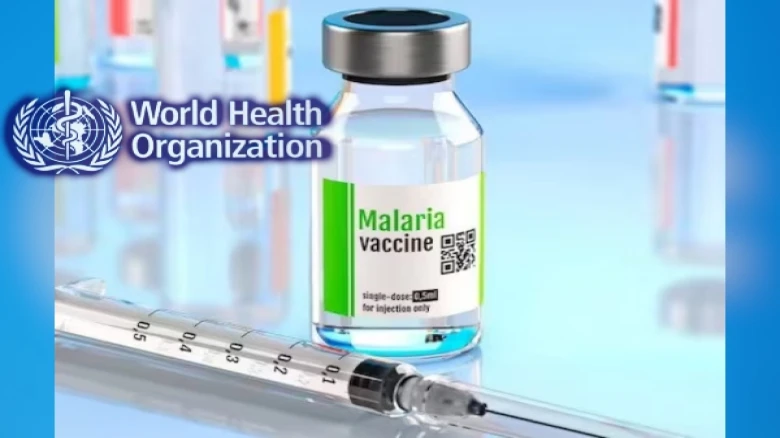Regional

The R21/Matrix-M malaria vaccine, produced by the University of Oxford and the Serum Institute of India, is recommended...
Digital Desk: The World Health Organisation (WHO) has recommended the use of the R21/Matrix-M malaria vaccine produced by the University of Oxford and the Serum Institute of India after it met all necessary safety, quality, and effectiveness standards.
The World Health Organisation (WHO) suggested on Monday the adoption of a second malaria vaccination to prevent the potentially fatal illness that some mosquitoes transmit to people.
WHO director Tedros Adhanom Ghebreyesus said, "Today, it gives me great pleasure to announce that WHO is recommending a second vaccine called R21/Matrix-M to prevent malaria in children at risk of the disease," as reported by Reuters.
Also Read : India: Two deaths recorded from Nipah virus in Kerala
When will the second malaria vaccine R21/Matrix-M become available?
According to Tedros, R21/Matrix-M, created by the University of Oxford in the United Kingdom, will be accessible by the middle of 2024, with dosages costing between $2 and $4.
As stated by Tedros, who was reported by Reuters, "WHO is currently reviewing the vaccine for prequalification, which is WHO's stamp of approval and will enable GAVI (a global vaccine alliance) and UNICEF to buy the vaccine from manufacturers."
Serum Institute of India further said in a statement, “The recommendation was based on pre-clinical and clinical trial data which showed good safety and high efficacy in four countries, at sites with both seasonal and perennial malaria transmission, making it the world’s second-ever WHO recommended vaccine for preventing malaria in children."
"Today's news is a testament to the work of our small but dedicated team and means we have another tool with which to fight this disease that kills over half a million people every year," said Dr Lisa Stockdale, Senior Immunologist, The Jenner Institute, University of Oxford.
However, more research is needed to prove not just that the vaccine works, but also to learn more about how it works and apply that knowledge to future vaccinations," Dr Lisa added.
"For far too long, malaria has threatened the lives of billions of people around the world, disproportionately affecting the most vulnerable among us," said Adar Poonawalla, CEO of the Serum Institute of India.
he further said, "This is why the WHO recommendation and approval of the R21/Matrix-M vaccine marks a significant milestone in our quest to combat this deadly illness, demonstrating what is possible when the public and commercial sectors, scientists and researchers, all work together towards a common objective."
The Jenner Institute at Oxford University and the Serum Institute of India produced the vaccine with funding from the European and Developing Countries Clinical Trials Partnership ('EDCTP'), the Wellcome Trust, and the European Investment Bank ('EIB').
The R21/Matrix-M malaria vaccine will compete with GSK Plc's RTS, S injection, which was recommended by the United Nations in 2021 and is sold under the brand Mosquirix.
Leave A Comment